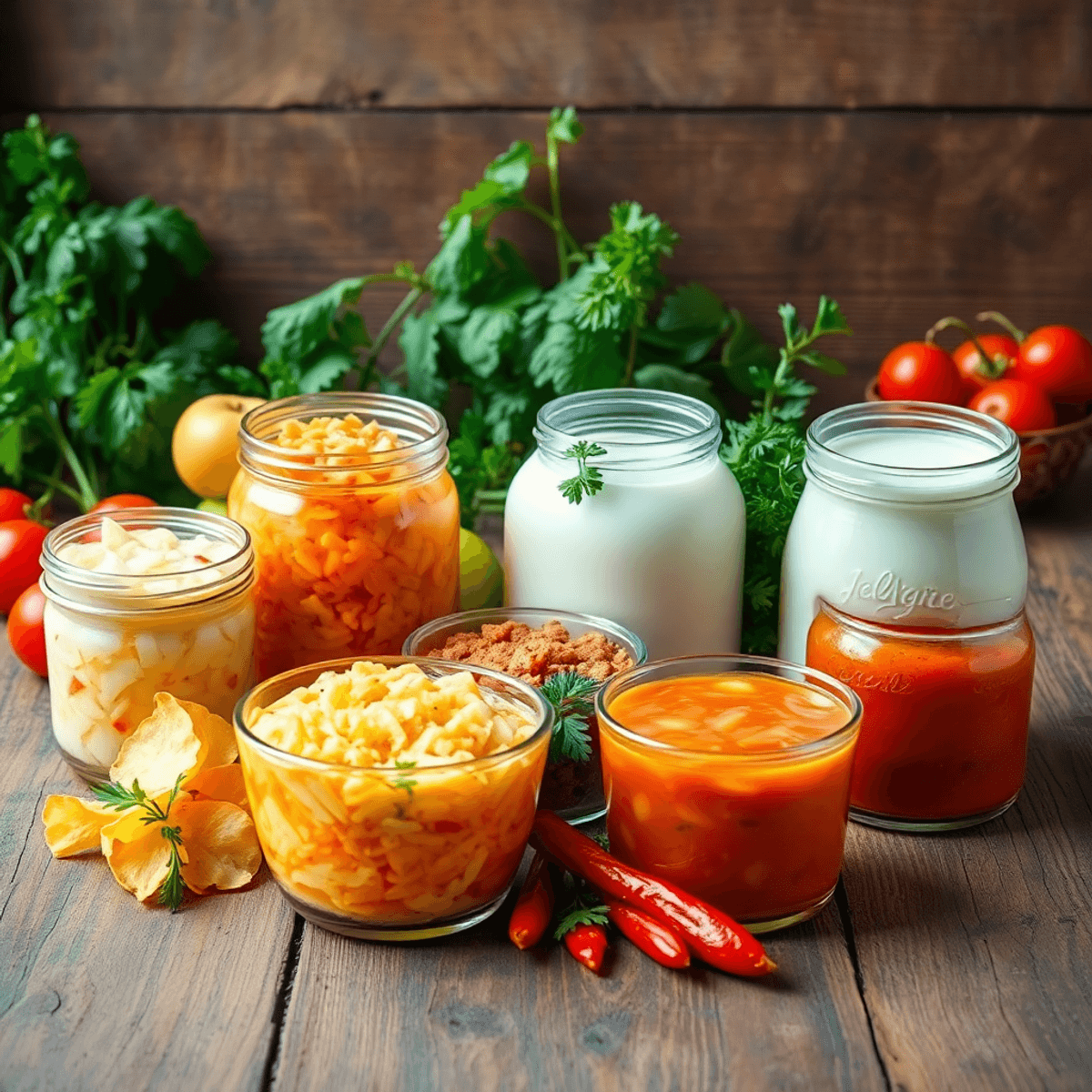11 Antiviral Herbs to Boost Your Immune System and Fight Viruses
Whether it’s the common cold, flu, Ebola virus, or coronavirus, the question remains the same: how can I boost my immune system? Our body’s natural defense mechanism works tirelessly to protect us from pathogens, but sometimes it needs a little extra support. One of the best ways to bolster your immune system is by using herbs. These natural antiviral powerhouses not only add an extra layer of protection but also make your meals flavorful. Ready to dive in? Let’s explore 11 antiviral herbs to boost your immune system and fight viruses.
1. Echinacea
Echinacea, a native North American coneflower, is generally classified as an herb. Many of its chemical constituents are effective immune system stimulators, providing significant therapeutic value. According to a meta-analysis published in The Lancet Infectious Diseases, echinacea reduces the chances of catching a common cold by 58%—pretty incredible, right? It also shortens the duration of a cold by almost 1.4 days. Echinacea works by stimulating the immune response and blocking viral proteins. While generally safe, it’s essential to consult your physician before taking it, especially if you are pregnant, breastfeeding, or have a serious medical condition.
“Nature itself is the best physician.” — Hippocrates
Shop our NEW advanced multivitamins with 60% more total nutrients* and receive 25% off your first order of $30+.*Compared to Nature Made Multi Gummies2. Elderberry
Elderberries are rich in minerals and vitamins like potassium, vitamin A, B6, and C. One cup of elderberry provides 52 milligrams of vitamin C, explaining its immune-boosting prowess. When taken at the onset of illness, elderberry helps reduce the duration and severity of symptoms. Studies show that elderberry increases inflammatory cytokine production, crucial for regulating the body’s infection response. However, some parts of the elderberry plant can be toxic, so it’s vital to prepare and harvest it correctly.
3. Andrographis
Andrographis is a potent herb known for its antiviral, anti-inflammatory, antioxidant, and anti-cancer properties. A study published in the Asian Pacific Journal of Tropical Disease (APJTD) indicates that compounds in this herb stimulate the immune response and prevent viruses from binding to cells. Andrographalide, an active ingredient in andrographis, is known to cure malaria and the influenza virus. It is commercially available in capsules or tincture forms and is generally considered safe. If you experience stomach upset, try reducing the dose and avoid taking it on an empty stomach.
4. Garlic
Garlic, a well-known kitchen ingredient, is packed with health benefits, including immune function enhancement. It helps the immune system fight germs due to a compound called allicin. Allicin boosts the response of white blood cells when they encounter viruses. Studies have shown that adding garlic to your diet can reduce the risk of viral infections and lessen the severity of illnesses if you do get sick.
5. Astragalus Root
Astragalus is a potent herb for supporting immune health. It functions as an immune stimulant and modulator. A study published in the Journal of Animal Science and Biotechnology indicates that astragalus reduces viral replication and promotes early immune response. It also benefits the immune system by affecting the gut microbiome, where 70% of our immune system resides. You can consume it by making tea, adding it to soups, or taking it in capsule form.
#1 B12 Energy Patch – PatchMD. Natural and Sustained Energy Release. Shop Now for 30% Off this Week
6. Turkey Tail
Coriolus, often referred to as turkey tail due to its color and striped pattern, has been used for centuries for its antiviral, antimicrobial, and anti-tumor properties. It contains protein-bound polysaccharides (PSP and PSK) that stimulate the immune system, reduce inflammation, and prevent diseases. It also positively affects the gut microbiome, increasing the population of good bacteria. Studies have found that beneficial gut bacteria are linked to enhanced immunity and lower cancer risk. Add turkey tail to your soups, sauces, broths, or stews for a tasty medicinal boost.
7. Reishi
Known as the “mushroom of immortality,” reishi supports immune function with its 35% beta-glucan content, a soluble fiber that enhances immune response. It improves immunity by interacting with gut microbiota and enhancing cell functionality. According to a study published in the Journal of Ethnopharmacology, reishi boosts immunity by stimulating cytokine production. It is commonly available in dried or powder form and used in tea, rice, or porridge. While you can find reishi extracts in capsule form, consuming whole food is always better.
8. Olive Leaf
We all know how great olives are, but their leaves also offer numerous benefits. Oleuropein, an antioxidant in olive leaves, has antiviral, antibacterial, and anti-inflammatory properties. Studies indicate that olive leaf extracts enhance immunity by stimulating cytokine production, increasing lymphocyte cells. Olive leaf extracts are available in capsules, soft gels, and tinctures. You can also make tea from fresh olive leaves, an excellent replacement for high-caffeine drinks.
9. Licorice Root
Licorice root is a powerhouse of selenium, zinc, magnesium, potassium, iron, and various phytonutrients that boost your immune system naturally. A study published in the Journal BMC Complementary and Alternative Medicine shows that licorice polysaccharides improve health conditions by stimulating cytokine and lymphocyte production. It also has anti-tumor properties. You can consume licorice by preparing tea, using its powder in food, or taking it as a supplement. It’s also great for digestive issues or respiratory problems. Although licorice is generally safe, it’s better to discuss it with your physician before taking it as a supplement.
10. Oregano
Oregano, a flowering plant from the mint family, is commonly used to flavor food but offers much more. A study published in the Brazilian Journal of Microbiology shows that carvacrol, the main active ingredient in oregano oil, can inhibit various human viruses. If you are allergic to mint or lavender, avoid oregano, as you may also be allergic to it.
11. Sage
Sage is commonly used for its distinct taste and aroma, but it also has antimicrobial properties that help ward off infections and support the immune system. Rosmarinic acid, a phenolic compound in sage, maintains immune system balance and is particularly beneficial for autoimmune diseases. A study published in the Journal Pharmacognosy Research indicates that sage enhances pathogen recognition and antioxidant defense. Available in fresh, dried, or tea form, sage can be added to your diet as a garnish for soups or broths.
Thanks to Mother Nature for providing these healthful herbs! Using them wisely can improve your health and reduce the risk of infections. While they are natural and healthy, side effects are possible, so consult your healthcare provider before adding them to your routine.
Will you start incorporating these antiviral herbs into your diet? Let us know in the comments below! Make sure to subscribe so you don’t miss out on future content.
Read More: Natural Health News: The Best Herbal Teas for Wellness
Here are some references for the antiviral herbs discussed in the article:
- Echinacea: Studies have shown echinacea to significantly reduce the chances of catching a cold and shorten its duration. A meta-analysis in The Lancet Infectious Diseases highlights its ability to reduce the risk of colds by 58%(SpringerLink).
- Elderberry: Known for its immune-boosting properties, elderberry helps alleviate cold and flu symptoms. Research published in The Journal of International Medical Research discusses its role in shortening flu duration(Centre for Reviews and Dissemination)(SpringerLink).
- Andrographis: A potent antiviral herb, andrographis has been studied for its role in preventing viruses from binding to cells. A study in the Asian Pacific Journal of Tropical Disease emphasizes its immune-boosting effects(Frontiers).
- Garlic: Allicin, a compound in garlic, boosts immune response and has been studied for its ability to combat viral infections(Centre for Reviews and Dissemination)(SpringerLink).
- Astragalus: This herb supports immune function and helps reduce viral replication. Research published in The Journal of Animal Science and Biotechnology outlines its immune-modulating benefits(Frontiers)(Centre for Reviews and Dissemination).
- Turkey Tail: Turkey tail mushrooms contain compounds that stimulate the immune system and improve gut health. Studies have linked its use to improved immunity and lower cancer risks(Centre for Reviews and Dissemination)(SpringerLink).
- Reishi: Known as the “mushroom of immortality,” reishi enhances immune function through its beta-glucan content, as detailed in the Journal of Ethnopharmacology(Frontiers).
- Olive Leaf: Olive leaf extract has antiviral properties due to its main active component, oleuropein, which enhances immune response(SpringerLink).
- Licorice Root: Rich in immune-boosting minerals and phytonutrients, licorice root supports cytokine and lymphocyte production, as explored in BMC Complementary and Alternative Medicine(Centre for Reviews and Dissemination)(SpringerLink).
- Oregano: Oregano oil’s antiviral effects are linked to its active ingredient, carvacrol, according to research in the Brazilian Journal of Microbiology(Centre for Reviews and Dissemination).
- Sage: Sage supports immune balance and is particularly helpful in autoimmune conditions, as highlighted in the Journal Pharmacognosy Research(Centre for Reviews and Dissemination).
“This page contains affiliate links. If you choose to purchase after clicking a link, I may receive a commission at no extra cost to you.”
These statements have not been evaluated by the Food and Drug Administration. This product is not intended to diagnose, treat, cure, or prevent any disease. Always consult with a healthcare provider before starting any new supplement regimen, especially if you are pregnant, nursing, taking medications, or have a medical condition.
Discover more from NatureZen Market
Subscribe to get the latest posts sent to your email.











